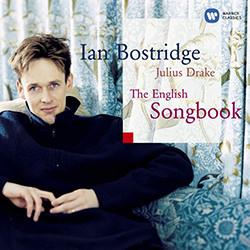The English Songbook
The English Songbook
1999 | EMI Classics
Ian Bostridge (tenor)
Track Listing
Stanford: La Belle Dame sans merci (John Keats) (1877)
Gurney: Sleep
Gurney: I will go with my father a-ploughing
Thomas Frederick Dunhill: The Cloths of Heaven
W. Denis Browne: To Gratiana Dancing and Singing
Somervell: To Lucasta, on Going to the Wars
Delius: Twilight Fancies
German: Orpheus with his lute
Warlock: Jillian of Berry
Warlock: Cradle Song

